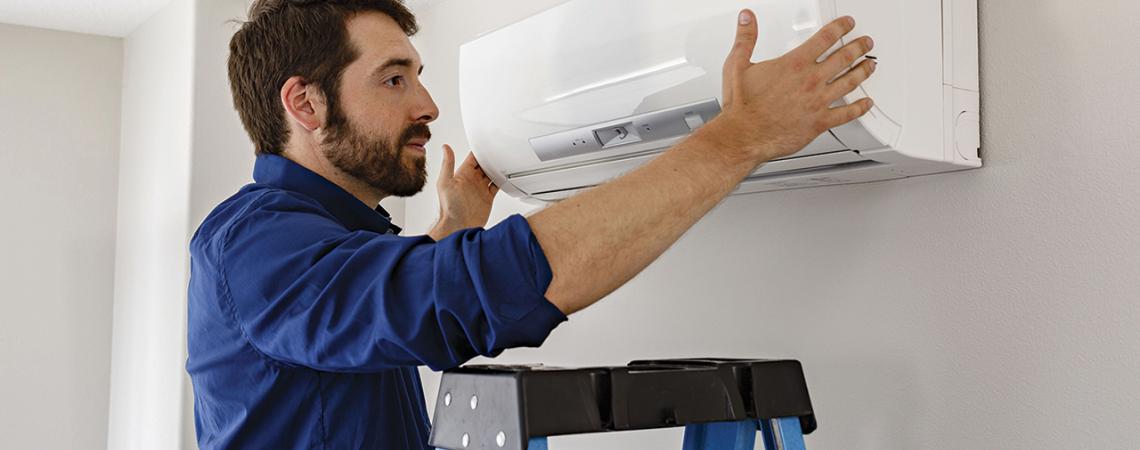A blower, sized appropriately for the room, is installed inside the house. (Photo courtesy of NW Energy Efficiency Alliance)
If baseboard heaters and window AC units are driving up household electric bills, mini-split ductless heat pumps might be a good answer.
The pumps can heat efficiently even when winter temperatures drop below freezing, and they are an economical and energy-efficient way to beat the summer heat.
Ductless heat pumps are often installed as the primary heating source, paired with a backup system that kicks in when outside temperatures are extremely cold. In regions and in the proper type of home, those who switch to this kind of system should see considerable reductions in heating costs.
Peter Niagu, an energy services advisor with Paulding Putnam Electric Cooperative in Paulding, Ohio, says members there have found that ductless systems with a backup heating system can work effectively even when the temperature is below zero.
Ductless heat pump systems could be an ideal solution in homes that don’t have a duct system, or when replacing or repairing existing ductwork would be prohibitive. Niagu also says the system is much more suited for homes with a few larger, open spaces than for those with many rooms to heat and cool.
A ductless heat pump has two main components: the outdoor compressor and the indoor air handler. Coolant and electrical lines run through a conduit from the compressor outside the home through the wall to the inside air handler(s). The pumps can be configured in different ways. A common approach is to provide heating and cooling to one large zone in the home by using a single compressor and a single air handler, but one compressor could power as many as five inside air handlers in different rooms, each with its own thermostat. A home could even have more than one outside compressor, though as more are added, obviously the price increases, and homeowners would need to evaluate the cost compared to other systems.
Questions to consider
Ductless heat pumps are often a great solution, but it’s wise to consider these questions:
- What are the other investments you could make to reduce your energy costs or improve comfort? Is the ductless heat pump the best option? A thorough energy audit of your home will help answer these questions.
- Are rebates offered by your electric co-op?
- What is the best size and efficiency level for a ductless heat pump in your situation?
- Are there contractors in your area with experience installing ductless heat pumps?
Contact your local electric co-op for a list of recommended contractors, and visit www.energystar.gov for tips on
hiring contractors.
Pat Keegan writes for Collaborative Efficiency, an energy communications company.









